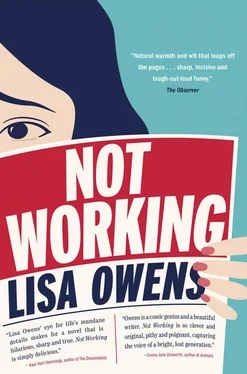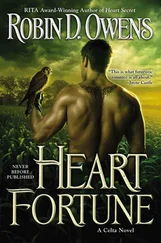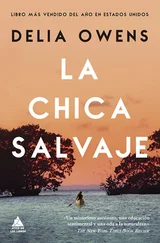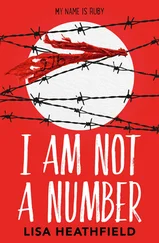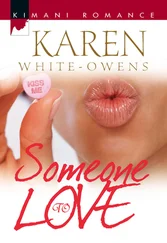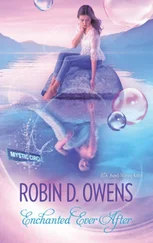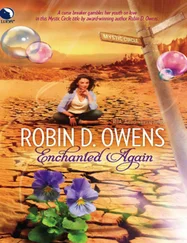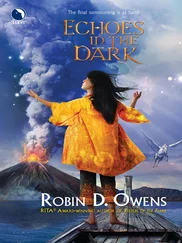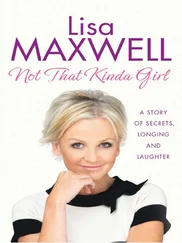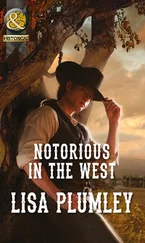“You can do better than a washed-up divorcée!” I say, feeling charming, irresistible. I haven’t felt this way in a really long time.
“I’ve always liked you, Claire,” he says, smiling now. His eyes are glossy, and his head lolls toward me, puppyishly.
Luke finds us a while later, me with my head on Nish’s shoulder, his arm around me, the empty bottle at our feet. I feel Nish tense up.
“Our taxi’s waiting. I’m going — are you coming or are you too comfortable?” He’s joking — I think he’s joking — and I throw my arms around Nish’s pink-shirted middle.
“Nish’s the best!” I say and grin up at Luke, who stands with his hands in his pockets. I get up and finish the wasabi peas, the tiny, runty gray ones I’ve rejected until now. I’ve had, perhaps, hundreds.
“You didn’t ask if I was ready to go,” I say as I follow him out. “You just went ahead and called a taxi. You always do that.”
“You never want to leave.”
“I didn’t even want to be there in the first place. You should be happy that I wanted to stay,” I say, tripping slightly on an uneven paving slab.
“Stay and flirt with Nish? You’re right. Why wouldn’t I be delighted with that?”
—
Back at home when I take off my bra, three wasabi peas skitter on the floorboards. I kiss Luke, but he rolls onto his side and turns off the light as though he hasn’t noticed I was making a move.
The next day, I feel dreadful: dehydrated and as though my insides are scorched. No amount of water seems to help. We play a lackluster set on the public tennis court near our flat; the balls keep flying at me like giant wasabi peas in a nightmare. Luke wins easily, 6–0, despite giving even less than I am.
“I’m never eating those things again,” I say. “I’m never drinking again either. The party wasn’t worth this.”
We have pasta for dinner with a mountain of Parmesan. Luke pours himself a glass of wine.
“Sure I can’t tempt you?” he asks.
“Go on, then,” I say, and I even take a refill.
Bright-eyed and bushy-tailed
Hard to believe it, but there was once a time when I would iron my clothes on Sunday afternoon, hang them up, crisp and ready for the working week ahead.
Four new emails, none personal.
Opposite me sits a youngish man reading a math book with a university library stamp: pages and pages of equations, it seems. I could be with someone like that, if things were different, if I were single, I think, admiring his slender fingers and strong, dark brow. Bookish (glasses), arty (music festival wristband), outdoorsy (tanned). Head for numbers, I can only assume, or at least showing a willingness to improve, and God knows I’m no good with them. His hair, though — a huge, springy mass, which is longer and thicker than mine — would have to go. I try to imagine him with short hair and no glasses, and realize he looks exactly like Luke.
What actually becomes of all this terrible art for sale in cafes, costing the earth?
“Did you ever do anything about the thing and that guy?” asks Luke, who is sprawled on the sofa.
“Going to need a few more details,” I say with my back to the static roar of the soccer game, painting my nails at the coffee table (a time-consuming but so far effective regime to make me stop biting them).
“The weed in the wall. The OBE guy.”
“ M BE and, it turns out, the buddleia isn’t a weed after all, or in any case, isn’t always a weed,” I say, hoping that’s an end to it — but no.
“So what are we going to do about it, then?”
“Hm?”
“You heard me.”
“I didn’t!” (I did.)
“What are we doing about the buddleia thing?”
“Not sure,” I say.
“Ignoring the problem, hoping it goes away?”
I poke the brush into the bottle so I can glare at him unhindered. “Thanks very much for the vote of confidence. I’ve been looking into it — I’m not going to get something ripped out of our home before I know what we’re dealing with.”
“Okay. So, what are we dealing with?”
I return to the varnish, reciting what I’ve learned: “The buddleia was first introduced to Britain from China in the, uh…something-th century as a decorative garden plant, but has since gone rogue owing to its highly dispersible seed. It thrives in urban, disturbed and neglected sites, such as railways, canal banks and old stonework.”
“Go on!” says Luke, sitting up now, and though I could very easily continue, the surging cheers of the crowd from the TV confirm he doesn’t mean me. Instead, I blow on my manicure to set the top coat of a shade that someone — on a payroll, at a desk, in an office somewhere — saw fit to name “Sizzlin’ Saucepot.”
I begin my application for the blue-plaque job exactly two hours before the midnight deadline. One section of the form requires me to nominate an historical figure for consideration under the scheme. All the good ones I can think of already have a plaque, so blind desperation — or inspired brilliance, only time will tell — leads me to the Reverend Adam Buddle, an eighteenth-century cleric and botanist in whose memory my new friend the buddleia was christened.
I read aloud to Luke, “ ‘Buddle spent many years working on an English Flora guide. He completed it in 1708 but it was never published.’ Isn’t that sad?”
“But he discovered a plant — I reckon that’s better.”
“He didn’t actually discover it. Someone else did, years after Buddle died, and named it in his memory. Buddle never even knew it existed. He was in fact more of a moss man,” I say.
“If an unpublished book and gardening hobby is all it takes to get a plaque nowadays, what about my uncle Ian?” I can hardly hear Luke above the racket he’s making: riffling through the cutlery drawer, pulling plates out from between other plates, hurling cupboard doors shut.
“I’m already not feeling great about this: please don’t make it worse. There isn’t enough time to start again.”
“Claire, you’ve been talking about this job for ages. I don’t understand why you’ve left it so late.”
“If you want to be helpful, instead of incredibly unhelpful, stop crashing around and tell me this: what other words can I use to do with heritage?”
“ ‘Old,’ ” says Luke, “ ‘history,’ ‘historic,’ ‘past’…No, wait, ‘the past’?”
“Or leave?” I suggest.
He does, with full mug and plate, the fruits of his deafening kitchen concerto, but moments later, from the living room he calls, “ ‘Posterity’!”—and actually, that’s not a bad shout.
—
I get the application off with three minutes to spare. Afterward I read it a few times over, pleasantly surprised by how good it is: I’ve transformed a handful of flimsy biographical details into quite a compelling argument. I’m particularly proud of my closing statement: “It is fitting that Buddle achieved posterity through the very medium he championed in his lifetime. He is not only a credible candidate for a plaque in his own right, but a powerful embodiment of, and argument for, the concept of heritage itself.”
“That last bit,” says Luke, “feels like it might be a bit of a stretch.”
“I’ve already sent it.”
“And stretching is good, ” he says, hands on hips, sinking into a wide-legged lunge.
Читать дальше
